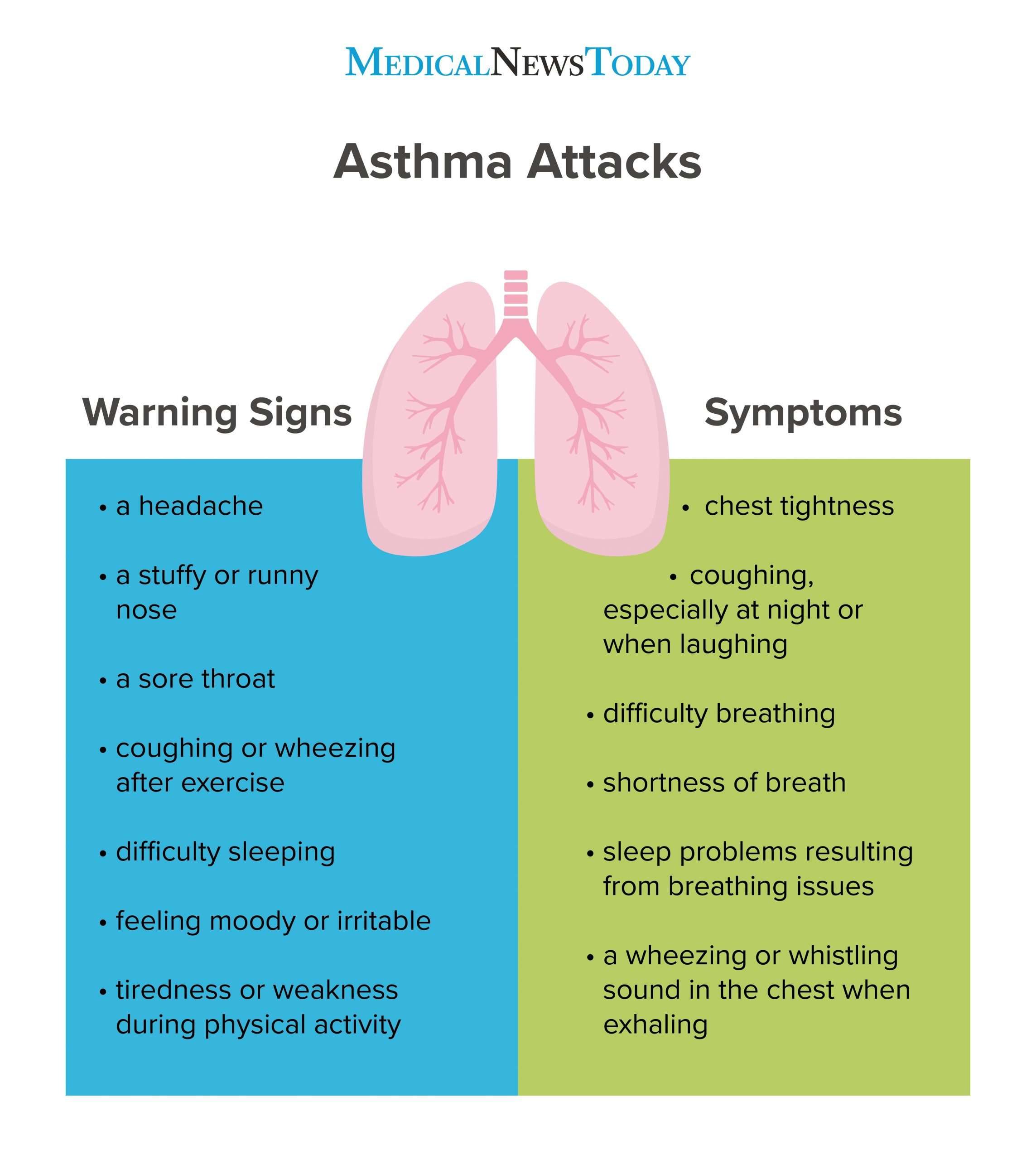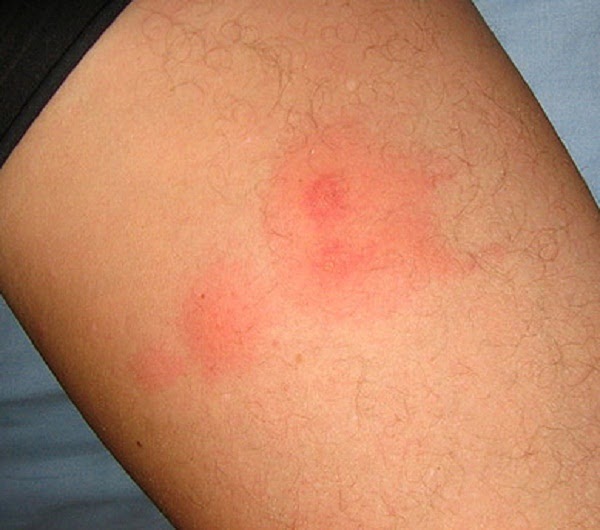What Is The Average Allergic Response
As mentioned, allergic responses differ between individuals, depending on the extent of their condition. Some people experience a severe reaction, while others have a much milder time with allergens.
In most cases, people with mild allergies may notice irritation to their eyes, mild reddening and inflammation, and some tearing. These individuals may also experience symptoms of sneezing and light coughing.
People with severe allergies notice more irritation to the eyes and the skin in general. They may also experience a stuffy sinus and intense watering from the eyes. Sensitive individuals may also begin to develop respiratory issues, and they may start to struggle with breathing.
What Causes Nighttime Allergies
You may spend the day with few or no allergy symptoms, only to experience sniffles and itchy eyes when you go to bed. Many triggers of morning allergies can cause bedtime allergies, as well.
For example, if your bedroom has more dust mites than elsewhere in your home, they may trigger symptoms as soon as you get into bed. If you donât spend as much time with your pet during the day, your furry friend may not cause your allergies to act up until they have settled into bed with you at night.
Unfortunately, cockroaches may be another possible cause of nighttime allergies, especially in urban homes. Like dust mites, they can shed saliva, feces, and even body parts that trigger allergy symptoms. They can even cause sinus or ear infections. According to ACAAI, the National Pest Management Association says that 63 percent of all U.S. homes contain cockroach allergens, but this number may be 78 percent to 98 percent in urban areas. Cockroaches may enter the home through windows and cracks in the walls or doors.
While pollen counts tend to be higher in the morning, it can also cause nighttime allergies. Warm temperatures push pollen into the air, but cooler evening air means that pollen falls back down to cover outdoor surfaces at night. If you collect pollen in your hair or clothes over the course of the day, it can cause bedtime allergy symptoms once youâre in for the night.
Take Allergy Medications At Night
If you currently take an antihistamine or allergy medication in the morning, consider taking it at night.
Many allergy medications, such as Zyrtec, are recommended every 24 hours. By taking the medication before bedtime youre more likely to get through the night without the active ingredients wearing off or becoming less effective closer to the end of the 24 hour period.
As with all medications though, its best if you consult with your doctor.
You May Like: Why Are My Fall Allergies So Bad
Take Decongestants For A Cold
Your coughs may be caused by the common cold.
Rest, chicken soup, fluids, and time are usually all it takes to beat a cold.
Though, if your cough is severe, you might try a cough medication for adults and children older than 6 years. that help reduce postnasal drip may also be used in adults and children older than 6 years.
Dust Your Furniture Regularly

Go a week without vacuuming or dusting your furniture, especially in a sunny well lit room and youll notice a film of dust collecting on bedside tables, dresser drawers and any other surface that doesnt get touched often.
If you dont have a regular cleaning routine that includes dusting and often wake up with a stuffy nose, dust mites may be to blame. A dust mite allergy is more common than you might realize.
You may be at higher risk for dust mites too if your bedroom decor includes large heavy drapes, lots of decorative pillows and upholstered furniture. Carpeting, shaggy rugs, stuffed animals, dolls, and books are also dust traps that need to be vacuumed often or dusted regularly.
Recommended Reading: Do Food Allergies Cause Swollen Lymph Nodes
What Causes Allergy Symptoms Worsen At Night And In The Morning
Everyone experiences allergies slightly differently, but there are some noticeable consistencies.
If you regularly sleep in a reclined position, this allows congestion to build up, making coughing, sneezing, and headaches worse. Since we are horizontal for most of the night , your allergy symptoms can get worse.
This is one of those times when knowledge is power sleeping with a few pillows propping up your head can help lessen your morning allergy symptoms.
Were also in our bedrooms for a long time at night. That means if there are already allergens in our space, were continuously being exposed to them. Introduce an air purifier or air filtration system to minimize this issue, and clean your room frequently. Youll thank us later.
You can also make sure the clothes that you wear in your room and house are not the same clothes you wore outside, since you dont want to bring your outdoor irritants indoors.
Allergic Rhinitis Is A Common And Debilitating Disease
- Allergic rhinitis affects around 18% of people in Australia and New Zealand.
- Allergic rhinitis predisposes people to more frequent sinus infections.
- People with allergic rhinitis are often tired due to poor sleep quality.
- Moderate or severe allergic rhinitis can affect general health, impair learning, increase time off work, and reduce productivity.
- Around 80% of people with asthma have allergic rhinitis, which can make asthma difficult to control.
Recommended Reading: Can A Gluten Allergy Cause Hives
How You Can Treat Allergic Rhinitis Yourself
You can often treat allergic rhinitis without seeing a GP.
If you can, try to avoid the things that trigger your allergies.
A pharmacist can also advise you about medicines that can help, such as:
- to unblock your nose
- salt water nasal sprays or solutions to rinse out the inside of your nose
You can buy nasal sprays without a prescription, but they should not be used for more than a week as this can make your symptoms worse.
If you have a high temperature or you do not feel well enough to do your normal activities, try to stay at home and avoid contact with other people until you feel better.
Does Benadryl Help With Seasonal Allergies
Benadryl® is a first-generation antihistamine. Antihistamines do exactly what they describe they block histamine. Histamine is the chemical released as an allergic response that causes allergy symptoms, including sneezing, runny nose, hives and red, itchy, watery eyes.
However, first-generation antihistamines tend to make you drowsy. Do not take them when you must do any activities that require you to be alert. Also, recent research suggests theres a link between long-term use of Benadryl and memory loss. So be sure to talk with your doctor before using Benadryl.
While Benadryl may work for your allergy symptoms, there are other option with fewer side effects.
You May Like: Can Having Allergies Make Your Throat Hurt
Seek Treatment For A Sinus Infection
Feeling like the Booger Monster? You could have a sinus infection.
Sinus infections can cause postnasal drip , which tickles the back of your throat and leads to coughing.
Getting prescription antibiotics for your sinus infection from a healthcare professional will help clear up the infection, and thus stop the drip in its tracks.
What Causes Coughing At Night
Many of the same things that cause a cough during the day cause a cough at night.
But the position one assumes while sleeping, the stagnancy and quality of bedroom air, and exposure to lint, dust, pollen, and mites from bedding can all make a PM coughing fit common.
No matter whats causing it, there are different remedies and lifestyle measures you can try to relieve or prevent nighttime coughing in both adults and children. Including:
- reclining on pillows
Good news: Usually, coughs do go away on their own! Most coughs will go away on their own within in a few days, says internal medicine specialist Eliana Rose, MD.
But *persistent* severe nighttime coughing can be a sign of a serious condition.
Chronic night-time coughing is a symptom of heart failure, as well respiratory illnesses such as bronchitis, pneumonia, and COPD.
Lung cancer and blood clots in the lungs are less common causes of severe coughs.
Casusis recommendation: Consult with a physician if your cough lasts longer than three weeks, or you notice the amount of phlegm in your coughing increasing or youre coughing up blood.
You should also get medical help if you have a cough and:
- a fever of 100F or above
- shortness of breath
Recommended Reading: Can Thyroid Problems Cause Allergies
Which Type Of Allergies Can Be Worse At Night
Different allergies may be worse at night than others. Depending on the type of allergy you usually suffer from during the day, your experience with nighttime allergies can vary.
Hay fever: Hay fever is a type of seasonal allergy associated with exposure to pollen from grass, trees and weeds. People who have hay fever may find that they are suffering more at night, possibly because of exposure throughout the day or surprisingly, the evening hours. As mentioned earlier, researchers have found that certain types of pollen tend to fall from higher up in the atmosphere closer to ground level during the cool hours after the sun sets. There could also be pollen in the bedroom, either from grains that have fallen from your hair or skin and onto bedding, or from dust that has come into the room from outside.
Pet dander: Many people have pets who sneak into their beds at night to cozy up near their best friends for a few hours of the night. As a result, beds tend to have higher concentrations of pet dander. Even if you are not actively inviting your pet to sleep with you, pet dander in your bed sheets may be triggering worse pet dander allergic reactions at night.
Mold: Mold thrives in dark places, such as under and behind your bed. These are also places people tend to seldom check and clean. Worsening mold allergies at night might be as a result of a moldy sleeping environment.
How Can I Prevent Nighttime Allergies

Avoidance and preventative measures are your best bet. Keep your windows closed, especially in your bedroom, and try to rinse off any pollen and change your clothes before bed. Try to keep your pets out of your room. Keep your mattress and pillowcase enclosed in mite-proof casing. Make sure humidity levels are appropriate, and clean any mold you see right away.
You can also try sleeping with your head elevated and rinsing your nose with saline daily, CEENTA allergy specialist Roy Lewis, MD, said. Also, make sure youre taking your allergy medicines as directed.
Come to CEENTA for your allergy needs. Well help you breathe easy, day or night.
This blog is for informational purposes only. For specific medical questions, please consult your doctor. New patients can make appointment online with Dr. Lewis or any of our ENT doctors in North and South Carolina. Current patients can also make appointments through myCEENTAchart with physicians they have already seen.
Read Also: Can You Take Allergy Medicine With Tylenol
How To Reduce Allergy Symptoms At Bedtime
There are many preventative measures you can take to reduce allergy symptoms at bedtime.
One of the easiest things you can do to reduce evening allergy symptoms is taking a shower as soon as you arrive home for the night. As we mentioned, outdoor allergens stick to your clothes, skin and hair, so removing those allergens as soon as you get home can reduce your symptoms.
In your bedroom, make sure your mattress and pillow are both protected by hypoallergenic covers, which will reduce dust buildup. Regularly laundering your curtains and drying your sheets on the highest setting once a week can also help reduce dust related allergy symptoms.
If you have a pet, you may want to consider limiting their access to your bedroom to reduce symptoms that are caused by pet dander allergies.
If your allergy symptoms persist despite these preventative steps, your PartnerMD doctor may recommend over the counter medications. You should wait until you speak with your doctor before taking OTC allergy medicines to make sure your medical history is cleared for these treatments.
Other treatments that may be helpful are simple saline washes that can help clear sinus congestion or other nasal sprays.
When symptoms persist despite over the counter medicines, your doctor may recommend a prescription medicine to combat allergy symptoms.
For the most effective treatment, take allergy medications right around dinnertime, so that they have time to reach their peak effectiveness when you need it most.
Symptoms Of Morning Allergies Include:
â Runny, itchy, or stuffy nose or sneezing
â Itchy, red, or watery eyes
â Coughing or wheezing
â Morning headache, caused by nasal congestion and inflammation
â Sore throat, either from allergens irritating your throat or from mucus collecting in the back of your nose and throat
Recommended Reading: What To Give Babies For Allergies
Avoid Polluted Areas When Possible
According to Casusi, the most common reason people cough is that the body is clearing the airways after or during exposure to pollution.
Given that more than 90 percent of the global population is exposed to polluted air every year, avoiding polluted areas altogether will be tricky.
But if youre affected by constant cough, consider checking the Air Quality Index before you travel by visiting AirNow.gov.
Simple Ways To Alleviate Your Allergies
Another potential cause of the aliment is household mold, if you are allergic to the stuff. It might be hiding in places near your bedroom, like the bathroom. Definitely do a quick mold hunt and eliminate any you find. If youre feeling really ambitious, you should go out and get yourself a dehumidifier. Mold loves moisture so keeping things dry should help .
Beyond that, experts say when allergy season comes around its a good time to update your bedroom. If its possible to get rid of your carpet, definitely do that. If not, make sure to vacuum daily. As gross as it is to think about, dust mites in your mattress and box spring might be the source of your itchy eyes and throat. In order to prevent the little guys, use a dust mite cover. An air purifier wont hurt either .
A rough nights sleep makes everything less tolerable the next day including allergies so before giving in to a season of grumps and itches, try these very simple and effective tricks to lesson your nighttime allergy symptoms.
Also Check: Can A 2 Month Old Have Allergies
Why Are My Allergies Worse In The Morning And At Night
Do you wake up with morning headaches, feeling congested, or sniffling? Do you struggle to go to sleep at night because of sneezing and wheezing?
If you have seasonal or environmental allergies, your symptoms may come and go at different times of the day. You may experience worse nighttime allergies, morning allergies, or even both.
Hereâs why your allergies may be worse at night or in the morning, and what you can do about it.
Deep Clean Your Home Once Per Month
Allergens are everywhere. They nestle into the corners of your living room, rest on your countertops, and pervade even a well kept home. If you suffer from allergies, whether during the day or simply nasal congestion at night, it is recommended to deep clean your home at least once per month.
Vacuuming the carpet, rugs, bath mats, and under your bed, wiping down hard to reach surfaces and areas that are regularly exposed to water , and cleaning walls adjacent to your bed are a good place to start. A monthly deep clean will ensure your bedroom stays clean and allergy-free.
Don’t Miss: Can You Drink On Allergy Meds
I Have Bad Seasonal Allergies What Are My Options
There is no reason to suffer even if your symptoms are really awful. If you have tried many over-the-counter options and are getting little-to-no relief, make an appointment with a board-certified allergist. Discuss prescription medications as well as allergen immunotherapy.
While these options may not eliminate your symptoms, they can help reduce them to a manageable level.
Tips For Nighttime Allergy Relief

by Sleep Center of Middle Tennessee | Last updated May 17, 2022
We only recommend products in our blog that we recommend in our office. We may receive a small commission on some products but it does not change the price you pay .
Do you struggle with allergy symptoms? Do they feel especially bad at night when youre trying to fall asleep or stay asleep? Whether your allergy response is caused by dust mites, pet dander, or pollen, seasonal allergies are an all too familiar annoyance. They often feel worse in the morning or at night calling for much needed nighttime allergy relief.
Hay fever, also known as allergic rhinitis, is common during allergy season. Inflammation occurs when you become exposed to an allergen like pollen, mold spores, or pet dander, among others.
Your allergic reaction may vary, but allergy symptoms often mimic cold symptoms. You may experience nasal congestion, sinus pain, a runny nose or itchy nose, sore throat, itchy eyes or watery eyes, sneezing, coughing, and fatigue.
Each of these symptoms is unpleasant during the day. At night, when youre trying desperately to fall asleep, they can feel even worse. Especially when they keep you awake which further compounds the foggy-heading exhaustion you feel during the day when allergies strike.
Related: Can Allergies Make You Tired?
Don’t Miss: Can Oral Allergy Syndrome Cause Hives

